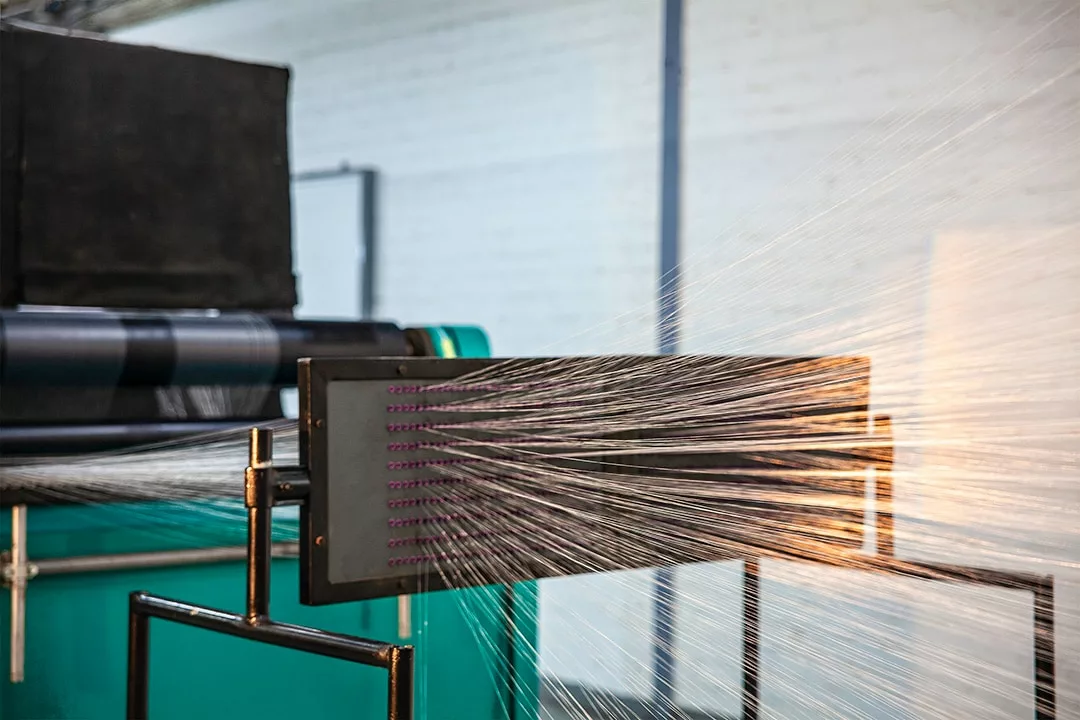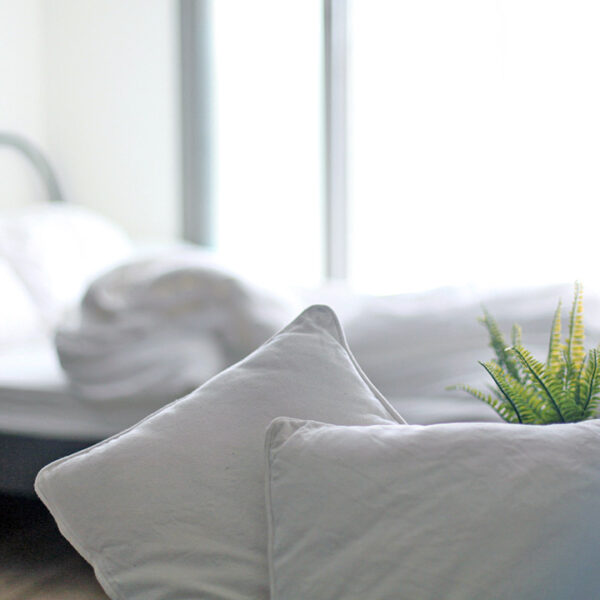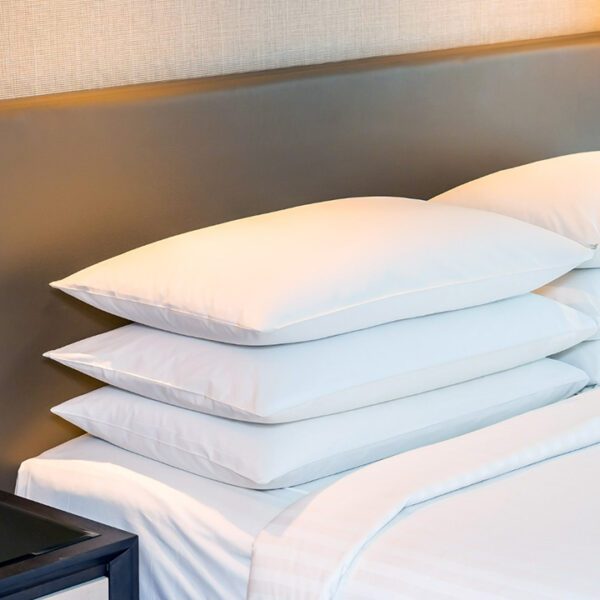Stitch-bonded non-woven material is made from recycled plastic bottles (called rPET). Romatex is a leading manufacturer and supplier of this sustainable textile in South Africa. We produce around two million square metres of stitch-bonded non-woven material every month, which is sold as fabric to various companies.
The colours of the material depend on the colour of the recycled plastic bottles. For example, our beige material gets its colour from ginger beer bottles, whereas our green material comes from recycled lemonade bottles. White stitch-bonded non-woven material is made from clear plastics, such as water and cola bottles.
We offer bespoke dyeing and printing services too, so our textiles can be dyed or printed with labels and logos on behalf of our customers. Unlike woven fabrics, stitch-bonded non-woven material is held together by a continuous thread of polymer twine. Since it is manufactured from plastic fibres, this textile has certain properties that are better suited to some products and uses.
What is stitch-bonded non-woven material used for?
There are many applications for this sustainable textile. The current range of markets that Romatex supplies include recycled shopping bags, waterproof membranes, home textiles, footwear, furniture, vertical window blinds and more. These products all contribute to the sustainable cycle of reused plastic, which helps to minimise plastic waste in our landfills and environment.

- Recycled shopping bags – One of the main uses for stitch-bonded non-woven material is recycled shopping bags. Many South African retailers offer these fabric bags to customers to keep and reuse. You have probably seen white, green, black, dyed and printed shopping bags at your favourite supermarket.
- Waterproof membranes – This is another major market for Romatex stitch-bonded non-woven material. Waterproof membranes are used in the construction industry to seal roofs and walls.
- Home textiles – Stitch-bonded non-woven material is also used in various home textiles, from mattresses and furniture to curtains and carpets. It’s a lightweight and eco-friendly alternative to cotton and other fabrics.
- Footwear – This textile is used in the manufacturing of shoes, as an internal layer.
- Vertical blinds – Next time you’re in an office or home with vertical window blinds, take a closer look at the material. This textile is commonly used to manufacture flexible window blinds in various colours. However, offices most often use beige or dark grey blinds which are part of our range.
- Eco-blocks – Stitch-bonded non-woven material can be used to make eco-blocks for housing and construction. It’s the perfect solution to turn plastic waste into permanent and affordable building materials. The fabric can be filled with sand or other materials to create strong bricks.
Romatex supplies stitch-bonded non-woven material to various industries in South Africa. In the last year alone, we have turned 54-million plastic bottles into this eco-friendly textile. As more uses are created, stitch-bonded non-woven material is set to become a more versatile and beneficial textile. For more information on our various products and textiles, please contact us today.
___
Romatex has been a leading manufacturer and supplier of stitch-bonded non-woven materials and homeware for over 50 years. Romatex is a Level 2 B-BBEE company that is owned by Deneb Investments Limited, a subsidiary of Hosken Consolidated Investments (HCI), which is listed on the Johannesburg Stock Exchange (JSE).
Our head office is based in Cape Town but we have branches in Gauteng, KwaZulu-Natal, the Eastern Cape and the Free State. For more information about our products, please contact info@romatex.co.za. Follow us on Facebook, LinkedIn and Instagram for our latest news and industry insights.

